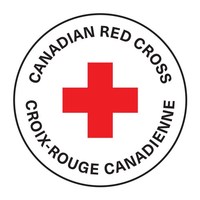A new study conducted by Leger for the Canadian Red Cross shows living in the COVID-19 era has left nearly half of young adults in Canada experiencing excessive anxiety and symptoms of depression.
Findings also show 40 per cent of young adults – identified as between 18 and 34 years of age – are not feeling hopeful about the future; while 38 per cent feel they could not get help right away if needed.
Dr. Paul Hebert, Special Advisor to the Canadian Red Cross and Professor of Medicine at the University of Montreal, calls results of the study ‘worrisome’.
“Adults in all age groups reported worse overall health over the last month, but the difference is more pronounced among those who are younger,” he says. “They are feeling more sad, more depressed and more hopeless than their older counterparts.”
Dr. Hebert says there is no magic cure. Rather, his advice is simply for families, friends, neighbours, employers and health professionals to keep young adults on their radar.
“Don’t wait for your son, daughter, friend or employee to call you. Check in on them – and other vulnerable people. See how they are doing. Make sure they know you are there for them – and that professional help is available should they need it.”
The Red Cross study was conducted between April 15 and 20. Web-based interviews were completed with 2,200 adults from across Canada. Questions were provided by interRAI and focused on public perceptions about social and psychological impacts related to COVID-19. The study will continue in the coming months and include follow-up with previous respondents.
“We are in uncharted territory here,” says Dr. Hebert. “Providing meaningful help requires that we seek to fully understand both the impact of this pandemic and the measures that are being taken to end it.”
Other notable findings from the Canadian Red Cross study:
- Adult Canadians who worry about their financial situation jumped to 46 per cent – up 13 per cent from pre-COVID-19 pandemic levels.
- Results of the Red Cross study did not indicate major concerns among Canadians regarding their ability to secure food or medication.
For a complete summary of the study and information about the Society’s service offerings in response to COVID-19, please visit redcross.ca
